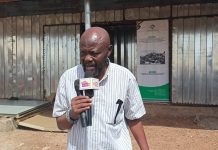“Death is not an evil, because it frees us from all evils, and while it takes away good things, it takes away also the desire for them. Old age is the supreme evil, because it deprives us of all pleasures, leaving us only the appetite for them, and it brings with it all sufferings. Nevertheless, we fear death, and we desire old age.”
Globally, thanks to a decrease in the communicable disease burden due to the availability of treatments for many infectious diseases that hitherto caused early-life mortality, most countries have seen an appreciation in their life expectancy at birth. The result is that for many countries in sub-Saharan Africa there is a bulge in the percentage of the population between the age of 15-64 years. Based on data from the 2021 population and housing census, the percentage of Ghana’s population in this age bracket is currently 59.73%.
The increase in this segment of the population will result in a year-on-year increase in the percentage of the population that is above the age of 65 years based on the country’s population growth rate of 2.1%. The census data indicates that the percentage of the Ghanaian population over the age of 65 years is 3.14% (approximately 967,000 people).
A further look at the data suggests that about 35% of the country’s population (10.8 million) reside in the Greater Accra and Ashanti Regions, both of whose population has appreciated at a much faster rate between 2010 when the last census was undertaken and now, compared with the remaining fourteen regions.
In the remaining regions, the population concentrations are within the urban compared to the rural areas. This suggests that a majority of those above the age of 65 years currently live in urban and peri-urban settlements.
This raises some health concerns, as many of them would require help with activities of daily living due to an increase in the number of chronic diseases they may be saddled with.
According to an article published by Luigi Fontana and Frank B Hu in Aging Cell, ageing has been identified as a risk factor for the development of multiple chronic diseases, including cardiovascular disease, stroke, cancer, osteoarthritis, and dementia amongst others. On average, 60% of people over the age of 60 years are known to be living with two or more chronic diseases.
The World Health Organisation (WHO) suggests that by 2030, non-communicable diseases will account for more than 50% of the disease burden in low-income countries and more than 75% in middle-income countries. This is an indicator that social care needs are going to increase significantly in the current decade.
Historically, many have relied on the extended family structure of our society to manage elderly care. The adage has been that the elderly take care of us from birth till we grow teeth and society then has a responsibility to take care of the elderly until they have lost all their teeth and ultimately exit this world.
The question we would want to pose is whether this model is currently serving the needs of our elderly and if it will continue to serve their needs moving forward. This question is relevant because many of those who may require this care may have lived their lives in urban communities and as nuclear families.
Will the extended family be willing to step in during their old age as their immediate children pursue their busy professions? Anecdotal evidence suggests to us that many who can afford and currently require care for the elderly are employing people at a fee other than relying on their extended family. Is this not an indication that the present model has outlived its usefulness?
This new development comes with several challenges as many of those employed are semi-literate and unskilled in the area of health and social care. Also, they often lack the empathy required to deal with elderly people who may be experiencing a deterioration in their mental health in addition to any other chronic diseases they may be burdened with. This has led to such employees being known to have abused those entrusted in their care either wilfully or ignorantly.
Wilful abuse often occurs when carers become fed up with the care demands of the elderly and ignore their simple requests or subject them to verbal and in some cases, physical abuse. In some of these instances, the abuse includes financial exploitation or theft. Ignorant abuse occurs when the carer is not skilled enough to help the senior citizen in assessing their health and social care needs or are oblivious to these needs. Both forms of abuse constitute neglect and could lead to a deterioration in the quality of life and health of the care receiver.
In a society where adult safeguarding is an alien concept, ultimately this deterioration in health results in pain in old age due initially to the onset of depressive states but later, further poor health as a result of complications emanating from further chronic diseases, adverse reactions to prescribed medications or a combination of these. If these are not spotted and remedied the end-of-life process for many could be a grim prospect and one that could confront any of us.
Another aspect of elderly care is derived from the ageing process as many non-communicable diseases cannot be treated but must be managed. This implies that at a point, management options run out and the process of dying must be dealt with. As a people, this is an area we have always shied away from and allowed to be shrouded in secrecy. Like anything that is not discussed, end-of-life care in Ghana is in most cases unplanned and unbudgeted.
Hence, many of our health facilities lack palliative care teams and the pharmaceutical supply chain is ill-equipped to provide the medicines required for end-of-life care in most cases. Also, the communication skills of many health professionals when managing the dying and or dealing with their families and loved ones are woefully inadequate and can come across as lacking empathy. When it comes to pain management, many have complained that health teams have failed to judge their threshold for pain adequately or have not taken into consideration their inability to swallow.
Hence, prescriptions for pain management have failed to relieve the sensation that may be foremost in their minds. This leads us to ask whether as a society we are unknowingly subjecting the elderly to unmerited pain in their twilight years? Whatever answer readers arrive at, we must not lose sight of the fact that today’s middle age is the beginning of tomorrow’s old age. Should we manage to avoid the risks of mortality due to accidents, all of us will need some form of palliative care in our later years. When that time comes, we can only blame ourselves if we allow the current poor provision of care to persist.
I will end with excerpts of a conversation between the writer and a colleague whose relation was going through the end-of-life process. This person had lived a full life as a top professional in Ghana, yet could not find the needed quality care as he lay in his vegetative state. Although the family could afford the cost of care.
In the end, this question was asked, “after all he has achieved if the likes of him can’t find decent palliative care, who in Ghana can?” This could be same for those of us with living parents, a predicament now, or any one of us in the coming decades. Please let that just sink in.
The irony is that most who may be reading this will have known a family member, friend, or acquaintance who went through all these stages in their old age before ultimately passing away. Yet, are unwilling to bring this subject to the discussion table as my colleague did. What the data from the recent population and housing census is telling us is that we can no longer play ostrich.
We owe it to these Ghanaians who we let down and to our peace of mind to begin a conversation on health, social, and end-of-life care. That budgets are read annually with little or no mention of this creeping epidemic is an indictment on our society.
The epidemic we see would not respect intellect, resources, or status, it could reduce wealth to an irrelevant convenience. Taking into consideration the opening statement, for many, death might be scary but for us, the truth of the matter is old age in Ghana is becoming dehumanising and it needn’t be. The reality is we need to have an honest robust discussion on old age values in dignity while factoring in what makes us human.










































